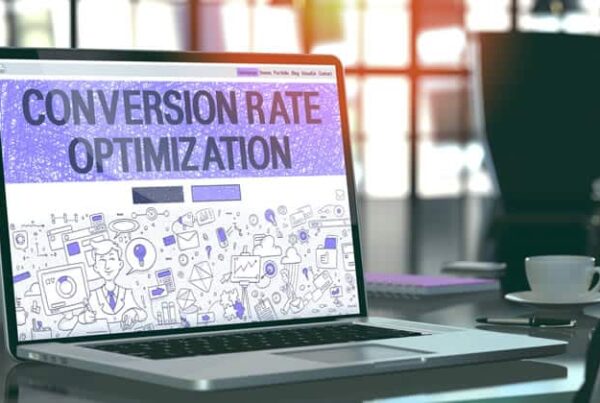As the e-commerce industry matures, there is increased competition between the growing digital brands to gain customers from the same set of audiences. In such situations, artificial intelligence in eCommerce can be the driving force that helps businesses gain a leading edge in the market.
In fact, an e-commerce digital marketing agency can enhance customer engagement by almost 15% by using AI for content personalization. Many such instances open up new avenues for the use of artificial intelligence in e-commerce, especially when search engines are also gearing up to provide users with better and more relevant search results.
Let’s take a deep dive into how AI can transform eCommerce and pave the way for its future.
What Is the Role of Artificial Intelligence in E-commerce?
If you look at recent trend insights, reports suggest that AI is all set to change the fundamentals of business. This includes a total transformation of how companies conduct daily operations, grow revenues, engage customers and retain employees, and even build new business or revenue models.
Speaking specifically for e-commerce, AI is rapidly penetrating the industry with a plethora of solutions that include streamlining supply chains, managing inventory and order data, predicting sales, etc. Statistics say that the market for AI-enabled e-commerce solutions is growing at a CAGR of 15.7% and is predicted to reach a value of $16.8 billion by 2030.
Considering the huge volume of data that the e-commerce industry generates today, AI plays a crucial role in e-commerce by providing businesses with:
- Enhanced computing power.
- Capability to process and derive insights from large volumes of data.
- Customizable analysis tool to extract patterns and predictions from historical data.
Perspective: E-Commerce Digital Marketing Agency and AI
E-commerce digital marketing agencies have the most to gain from implementing AI-powered solutions to provide customers with better outcomes. For example, leveraging AI to personalize customer journeys can help reduce Customer Acquisition Costs by about 50%, increase revenues by as much as 15%, and increase marketing ROI by up to 30%.
It is possible to use AI copywriters to generate highly engaging, relevant, and keyword-rich website content that attracts organic traffic. The same tool can also generate product descriptions and bulk content quickly for easy setup and low expenses.
Considering how blogging is important to generate authority in any niche, your e-commerce digital marketing agency can leverage GenAI to create compelling blogs and narratives that go on your website to attract more traffic.
Digital marketing agencies also leverage AI to automatically generate engaging social media posts that are completely optimized for high reach on their respective platforms. This shortens the overall time taken to create posts and upload them on a schedule to the social media platform.
AI-driven solutions enhance the efficiency and effectiveness of e-commerce marketing strategies. When it comes to optimizing campaigns, targeting the right audience, and analyzing performance metrics, AI provides invaluable insights that drive smarter decision-making and better overall results.
Next-Gen E-commerce With AI
Several applications of artificial intelligence and its products have tremendous potential to reshape the future of e-commerce. Let’s take a look at five key AI technologies that can rearrange how e-commerce works:
1. Machine Learning
One of the key applications of machine learning in e-commerce is in recommendation engines. ML algorithms can self-learn from customers’ shopping patterns and suggest relevant items for them to shop. ML is also crucial for learning from human interactions in order to generate insights on how best to enhance customer journeys.
2. Natural Language Processing
Using Natural Language Processing, it is possible for e-commerce web apps and mobile apps to provide voice-based search for their customers. NLP capability enables apps to understand the customer intent behind the search to display the most relevant information and products. NLP is critical for customer self-service, especially in chatbots, so that the query resolution time can be drastically lessened.
3. Sentiment Analysis
Considered a branch of natural language processing, sentiment analysis goes a step further to analyze customer emotions. Through the conversations recorded over automated calls, chatbots, and other service channels, AI sentiment analysis can identify phrases and emotions in customer speech and phrases to determine how happy or dissatisfied they are. This can drastically enhance the level of service.
4. Predictive Analytics
In order to maintain just the right amount of inventory and manage supply chains better, AI provides predictive analytics that help predict and forecast sales for a determined future period. This also helps companies prevent overspending and plan their purchases and marketing better.
5. Deep Learning
Deep learning is a more advanced version of machine learning. Deep learning chiefly focuses on understanding the buyer journey throughout the company’s channels, collating data, and deriving insights into their usage and patterns. This helps companies personalize user journeys and create more compelling touchpoints, marketing, and sales funnels.
How Can an E-commerce Digital Marketing Agency Use AI in E-commerce?
So, how can e-commerce companies really leverage the power of AI in their day-to-day business? In addition to improving the e-commerce experience for customers, there are several other applications of AI for e-commerce that can make the whole ecosystem more efficient:
1. Enhanced Cybersecurity
AI has the capability to detect anomalies by understanding “normal” patterns and deviations from those patterns. This capability is crucial for fraud detection in e-commerce. Additionally. You can also provide your customers with safe browsing experiences by employing AI to detect inappropriate content and the use of expletives.
For example, Shopify uses AI to detect and prevent fraudulent transactions, protecting both merchants and customers from potential losses. This proactive approach to security helps build trust and confidence among users, reinforcing the platform’s reputation for safety and reliability.
2. Stronger Customer Service
E-commerce platforms today make extensive use of chatbots and self-service options. Employing AI in these applications has several benefits:
- Companies can understand the most common queries that their customers are asking.
- It is possible to classify each query automatically and redirect a customer to the most relevant service station.
- AI chatbots can streamline customer support in case a query is complicated and quickly engage the soonest available agent.
- This data can also be further used for analysis and improvement of customer service.
A prime example of this in practice is Sephora’s Virtual Artist. This innovative tool employs AI and augmented reality to allow customers to virtually try on makeup.
Offering a realistic preview of how products will look significantly enhances the online shopping experience. Customers can make more informed purchasing decisions, which not only boosts satisfaction but also reduces the likelihood of returns, benefiting both the customers and the company.
3. Targeted Marketing and Advertising
The more customers interact with an e-commerce app, the more data the AI engines collect to develop highly targeted campaigns. The algorithms gather data from searched products, purchase history, average order value, browsing habits, cart abandonment, use of offers, points, discounts, etc., to design personalized campaigns for similar customers.
For example, H&M uses AI to analyze data from its stores and online channels to predict trends and manage inventory. This helps reduce waste and ensures popular items are always in stock. By leveraging AI, H&M can meet customer demands more effectively and enhance the overall shopping experience.
4. Streamlined Business Processes
E-commerce companies face a load of backend tasks like inventory management, security, order processing, shipping and fulfillment, user authentication, etc. These tasks, in turn, consist of a lot of repetitive activities that can be easily automated using AI. Tasks like data entry, email marketing, and order processing are ideal for automation as they consist of similar information and processes for every item.
The future of online shopping will likely see even greater reliance on AI to streamline these operations, leading to faster, more accurate, and cost-effective management of e-commerce functions. Automation will not only reduce manual effort but also enhance operational efficiency, allowing businesses to focus more on strategic growth and customer engagement.
5. Extreme E-commerce Personalization
AI makes personalization in recommendations, offers, discounts, interactions, feeds, etc., easy. This is because algorithms are designed to understand customers’ app usage patterns, shopping patterns, and wish lists to generate highly relevant browsing experiences.
For example, Amazon’s recommendation engine uses AI to provide personalized product suggestions based on users’ past searches, purchases, and browsing behavior. This targeted approach has significantly increased Amazon’s sales and customer satisfaction by ensuring that customers are consistently presented with products that align with their preferences and needs.
Make Smart Choices With AI for E-commerce
Today, AI is extensively used for personalizing user journeys and automating repetitive backend tasks. In the future, AI is set to power the more complex operations of the e-commerce interfaces, such as generating real-time dynamic feeds that respond to the customers’ current browsing and generating smarter recommendations.
More importantly, every e-commerce digital marketing agency is now poised to utilize the analytical prowess of AI to deliver more compelling campaigns and content for e-commerce companies.
For a deeper impact with AI in e-commerce, consider partnering with Mediaforce. We offer advanced AI solutions that enhance personalization, streamline operations, and improve marketing effectiveness.
Our proprietary media bidder optimizes media purchases across global channels, allowing you to control the most beneficial marketing and advertising avenues for your brand.












